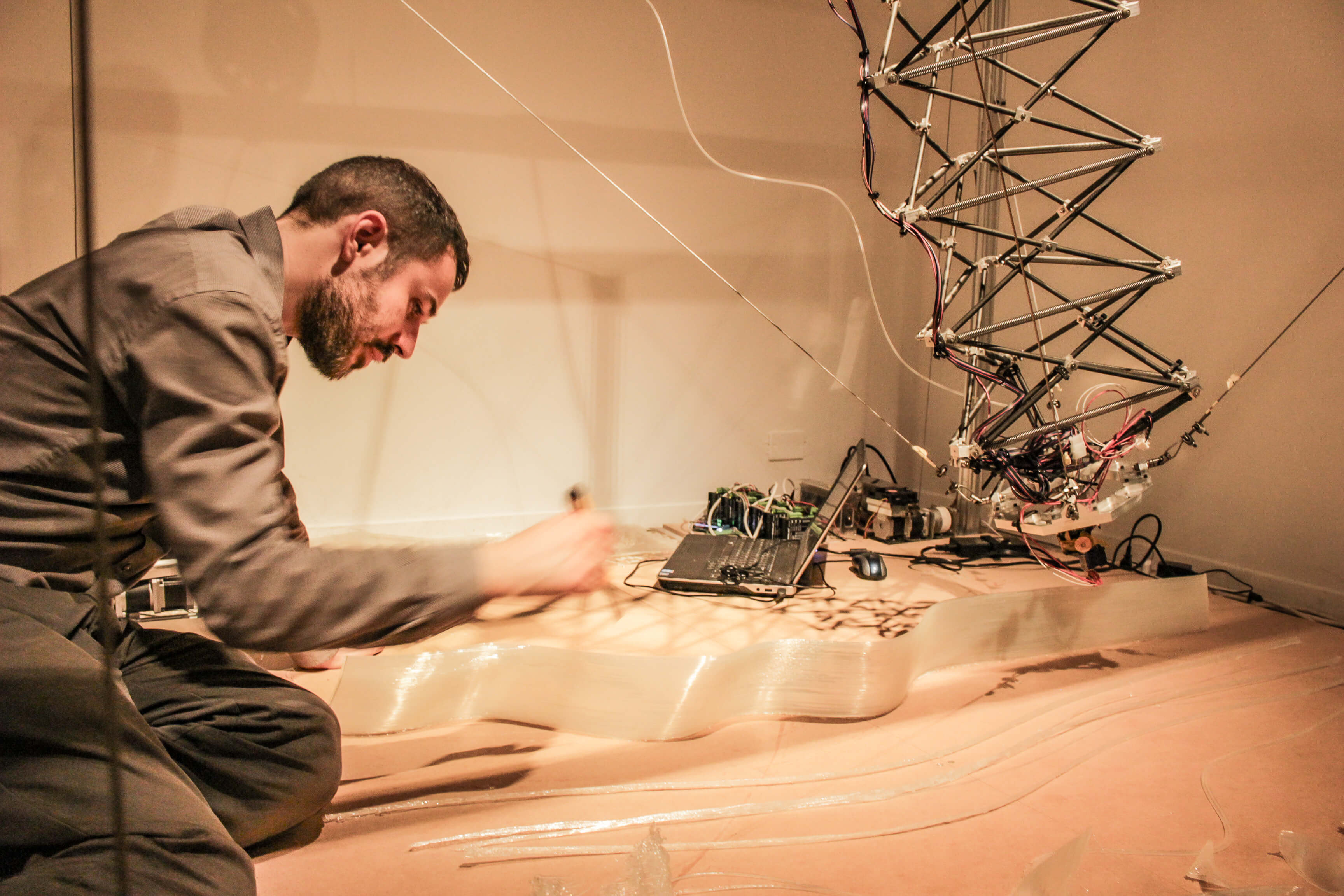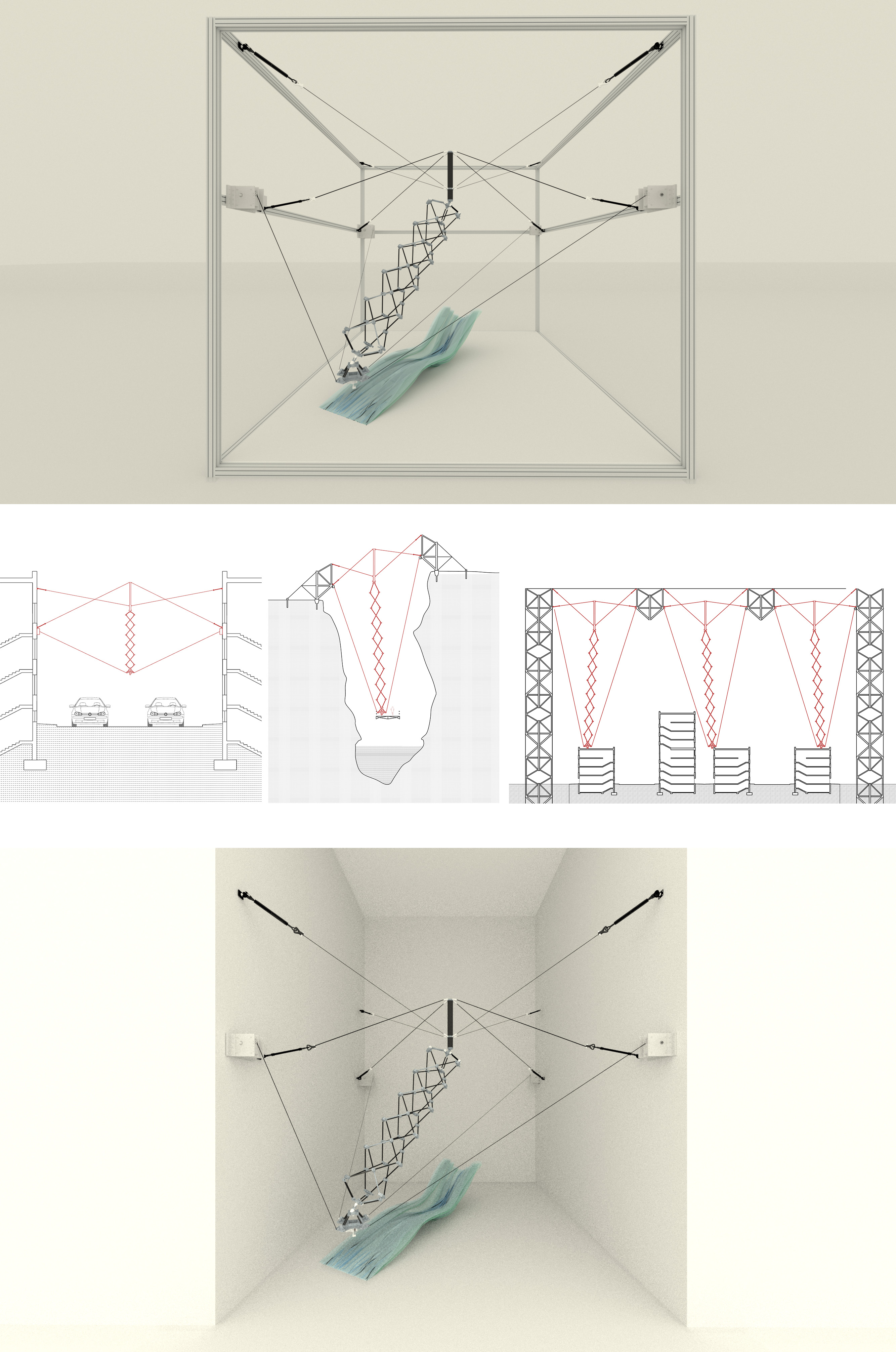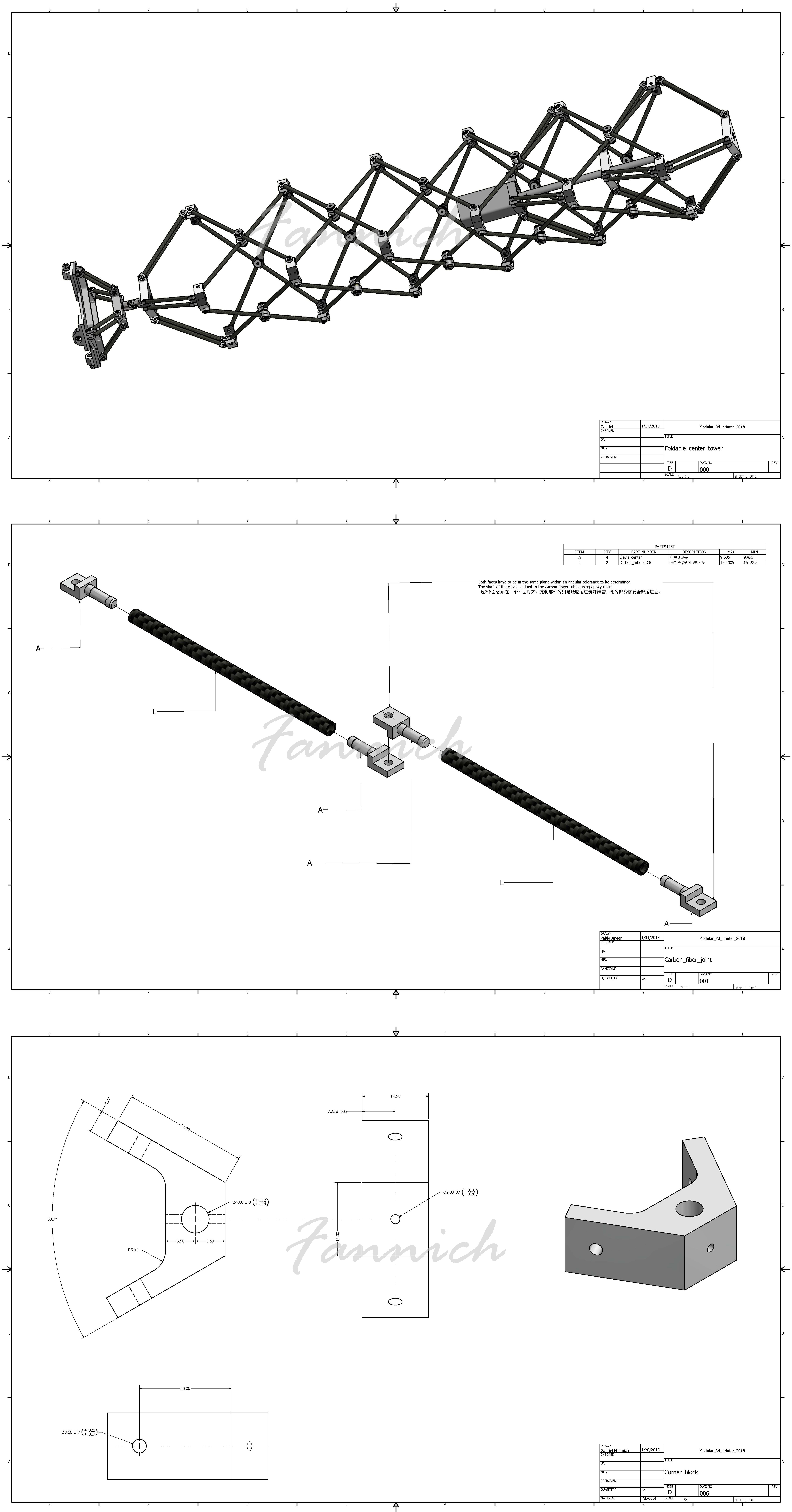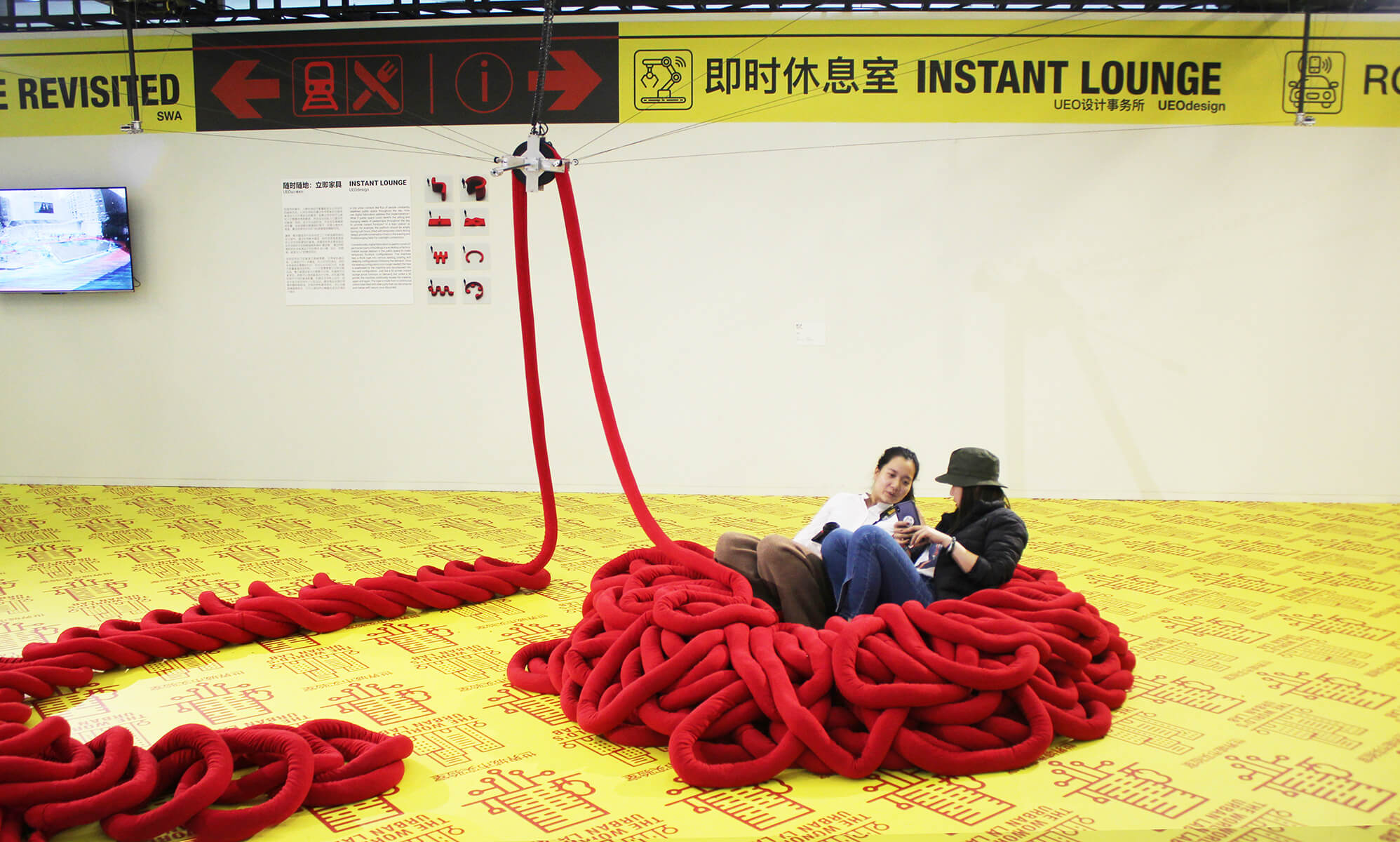
Spider Printer
Spider Printer is a 3D printer built with a lightweight tensegrity structure. This machine was invented, designed, and fabricated by Gabriel,Pablo Toubes-Reiger, and Chloe Fan, in collaboration with Eiora Architect, Pablo Lorenzo-Eiroa.
The project began with the idea of large-scale 3D printing, but quickly confronted a major challenge: the traditional four-way gantry system requires a heavy structural frame to support the printing process. To overcome this limitation, we reimagined the printer’s framework as a lightweight cable system based on the principles of tensegrity.
The tensegrity structure offers two key advantages:
- Lightweight — it reduces the overall mass of the system.
- Modular & Expandable — it allows easy scaling for different project sizes.
Inspired by the geometry of a spider’s web, the Spider Printer anchors itself to existing structures (such as room walls or building exteriors) and uses tensioned cables to form a six-axis movement system. This creates a highly flexible, efficient, and scalable platform for 3D printing.
Tensegrity Structure
A tensegrity structure is a design where rigid rods are held in place by a network of tensioned cables. The balance between pulling forces in the cables and pushing forces in the rods makes the system stable, lightweight, and strong. The Spider Printer applies this principle by using its surroundings as part of the structure, much like a spider web anchored to nearby surfaces. Instead of a heavy frame, the printer attaches cables to existing structures such as walls or cliffs. The central gantry arm acts as the compression element, while the tensioned cables stabilize and support it, creating a lightweight and adaptable six-axis printing system.

Central Arm
The central arm is built from a modular carbon-fiber structure assembled in segments. It is powered by a DC motor that allows it to expand and contract, and it is embedded with a spring layer that pushes against the cable system. This interaction generates rigidity across the overall structure, creating the tensegrity effect. At the end of the central arm, the extruder is attached.

Early Protype
Early prototypes included photos, drawings, and detail shots of the central arm. The machine was designed as a five-axis system: four axes created by sets of cables pulling in the x, y, and z directions, with the central arm functioning as the fifth axis. In later development, the central arm was redesigned for passive control. Instead of being motor-driven, it was powered by a ring layer of springs, allowing it to act as a passive movement reactor in coordination with the four-axis cable system.
.jpg)
Spider in Action
The project was exhibited at the Venice Architecture Biennale in Palazzo Bembo, where the Spider Printer was installed in a dedicated room. Because of the historic nature of the building, the machine was deployed within a rigid support box rather than anchored directly to the exhibition structure. On site, the printer carried out a series of test prints as well as one large, furniture-scale lounge chair. Detail shots highlight the layered texture of the prints and the experimental qualities of the process.
.jpg)
Venice Biennale
The Venice Architecture Biennale is one of the world’s most important international exhibitions of contemporary architecture, bringing together architects, designers, and researchers from across the globe to showcase experimental ideas and groundbreaking projects.
.jpg)






